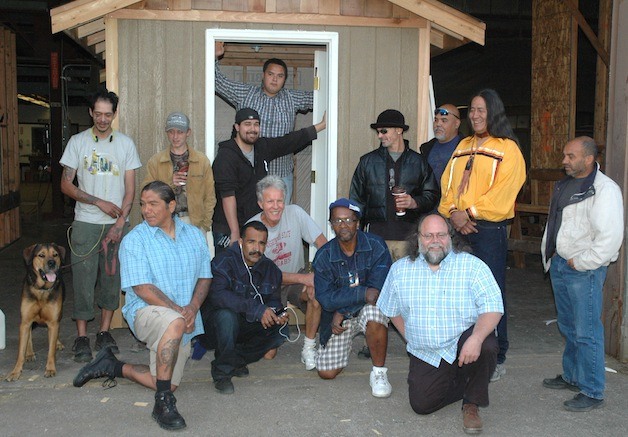TULALIP — By the time 13 pre-apprentice students of the Vocational Training Center of the Tulalip Tribal Employment Rights Office (TERO) graduated June 15, they had something to show for it, and so did the community.
TERO had worked with the students in a construction training program to build two tiny houses for Nickelsville, a housing community for homeless adults in Seattle, named after the city’s former mayor, Greg Nickels.
Darwin Weaselhead, a 48-year-old Tulalip Tribal member, worked with his son in the class, which also saw students build furniture and home decor items for others, but he was especially proud of the houses, which include insulation and electricity.
“We also put in a fan and a window, so the air can circulate, and they can breathe better,” Weaselhead said. “I’ve lived in Yakima, and there’s a lot of homeless people out there, too. Just getting some shelter and a place to rest, and getting off the street, really helps out a lot.”
Weaselhead believes he’s gained at least as much from his labors as the recipients of the tribes’ tiny houses.
“During our semester’s spring break, TERO found jobs for those of us who stuck around,” Weaselhead said. “I worked in landscaping, trimming trees. We have students from all sorts of other tribes.”
While some came from as far away as South Dakota, Philip Falcon hails from relatively nearby Coeur D’Alene, Idaho.
“It’s a nice feeling, knowing that we can do something so concrete and constructive, especially about a problem that we’re starting to see even here,” said Falcon, who looks forward to embarking on a career as a carpenter. “Out instructor Mark [Newland] has been right behind us, every step of the way, showing us all the tricks of the trade. Just putting a roof over someone’s head can be enough to make them feel secure and turn them around.”



